Description
Consolação às Tribulações de Israel. Edição de Ferrara, 1553 | Consolation to the Tribulations of Israel. Ferrara Edition, 1553 (2 Volumes)
Usque, Samuel
Estudos / Introductory essays by de Pina Martins, José V. e/and Yerushalmi, Yosef Hayim
Fundação Calouste Gulbenkian, Lisboa, 1989.
2 volumes Capa mole com ilustração editorial e abas | 2 vols Pictorial Paperback with flaps.
Vol. I, [v] 419 páginas | pages. 23,5 x 3,4 x 18cm.
Estudos introdutórios por Yosef Hayim Yerushalmi (em inglês e de 15-124 pp) e José V. de Pina Martins (em portguês e de 9-13 pp e 125-404 pp), com várias gravuras fora de texto em papel couché de boa qualidade.
Introductory studies by Yosef Hayim Yerushalmi (in English and running 15-124 pp) and José V. de Pina Martins (in Portuguese and running 9-13 pp and 125-404 pp), with several out-of-text prints on coated quality paper.
Idioma | Language: Inglês e Português | English and Portuguese
Vol II, [ix ] 281 páginas | pages. 23,5 x 2,7 x 18cm.
Fac-simile da edição de Ferrara, 1553. Texto fac-similado das “Consolação às Tribulações de Israel “, sem paginação
Facsimile of the 1553 Ferrara edition. Facsimile text of the “Consolation to the Tribulations of Israel“, without pagination.
Livro em estado de novo. Ainda por abrir, nunca lidos | Brand new, mint condition, uncut and unread books.
PT
Obra submetida a apertada censura por parte do Santo Ofício, encontrou sempre dificuldades de circulação em Portugal e Espanha, a “Consolação às Tribulações de Israel” constitui um documento textual para a preservação da memória dos Sefarditas.
As obras produzidas por judeus sefarditas na Diáspora Atlântica em meados doséculo XVI podem revelar estruturas de pensamento que formaram nos tempos modernos a cosmovisão dos cristão-novos judaizantes. Estas obras foram escritas numa linguagem cifrada para não levantar suspeitas do Santo Ofício e seu significado ser entendido apenas pelos de origem mosaica. Destacando, assim, o potencial da Literatura como fonte históricae ressaltando a sua influência no imaginário popular. Dentre este amplo quadro, a obra do judeu português, Samuel Usque, Consolação às Tribulações de Israel (Ferrara, 1553), foi escolhida para análise no sentido de perscrutar quais elementos da Identidade cristã-nova o texto pode revelar, utilizando conceitos como o de representações, utensilagem mental e continuidade histórico-cultural.
Samuel Usque Escritor português, nascido em 1492, sofreu as vicissitudes e perseguições de que foram alvo os judeus portugueses no período renascentista. Exilado, publicou em Ferrara a sua principal obra Consolação às Tribulações de Israel (1553).
Este texto apresenta um carácter vincadamente apologético do judeísmo, dando corpo a uma «filosofia religiosa em torno da história judaica». Com efeito, propôs-se narrar o sofrimento e as perseguições de que fora e era alvo o seu povo desde os tempos bíblicos até às opressões de que ele próprio fora vítima.
A obra é composta por três diálogos travados entre outros tantos interlocutores: Jacob, que representa o pensamento do autor, e os profetas Nahum e Zicareo, cuja função é vincar o carácter verídico das profecias, ao mesmo tempo que consolam o povo apontando a eminência do seu destino e missão históricas.
Sempre com o texto da Escritura por fundamento da narração e em estilo marcadamente bucólico e pastoril, dá acolhimento à filosofia esotérica hebraica, nomeadamente à teoria da metempsicose, que acolhe possivelmente através do esoterismo cabalístico, com mistura de concepções neoplatónicas. Com efeito, num dos citados diálogos, coloca na boca de uma das suas personagens, a respeito do destino das almas que abandonam a crença, a defesa da transmigração das almas, passando de corpo em corpo, num processo de purificação ou degradação progressivas.
ENG
A work subject to strict censorship by the Holy Office, it has always encountered difficulties in circulation in Portugal and Spain, the “Consolation to the Tribulations of Israel” is a textual document for the preservation of the Sephardic memory.
The works produced by Sephardic Jews in the Atlantic Diaspora in the mid-16th century may reveal structures of thought that formed in modern times the worldview of Judaizing Christian-New. These works were written in encrypted language so as not to raise suspicions of the Holy Office and its meaning to be understood only by those of Mosaic origin. Thus, highlighting the potential of Literature as a historical source and emphasizing its influence in the popular imagination. Among this broad picture, the work of the Portuguese Jew, Samuel Usque, Consolation to the Tribulations of Israel (Ferrara, 1553), was chosen for analysis in order to investigate what elements of the New Christian identity the text can reveal, using concepts such as representations, mental utensil and historical-cultural continuity.
Samuel Usque Portuguese writer, born in 1492, endured the vicissitudes and persecutions suffered by Portuguese Jews in the Renaissance period. In exile, he published in Ferrara his main work, this one, the Consolation to the Tribulations of Israel (1553).
This text presents a markedly apologetic character of Judaism, embodying a “religious philosophy around Jewish history”. In effect, it was proposed to narrate the suffering and persecutions that his people had been and were targeted from biblical times to the oppressions of which he himself was a victim.
The work is composed of three dialogues held among many other interlocutors: Jacob, who represents the author’s thought, and the prophets Nahum and Zicareo, whose function is to emphasize the true nature of the prophecies, while consoling the people by pointing out the eminence of the its historic destination and mission.
Always with the text of Scripture as a basis for the narration and in a markedly bucolic and pastoral style, it welcomes the Hebrew esoteric philosophy, namely the theory of metempsychosis, which it possibly welcomes through Kabbalistic esotericism, with a mixture of Neoplatonic conceptions. Indeed, in one of the aforementioned dialogues, he puts in the mouth of one of his characters, regarding the destiny of souls who abandon belief, the defense of the transmigration of souls, passing from body to body, in a process of progressive purification or degradation.

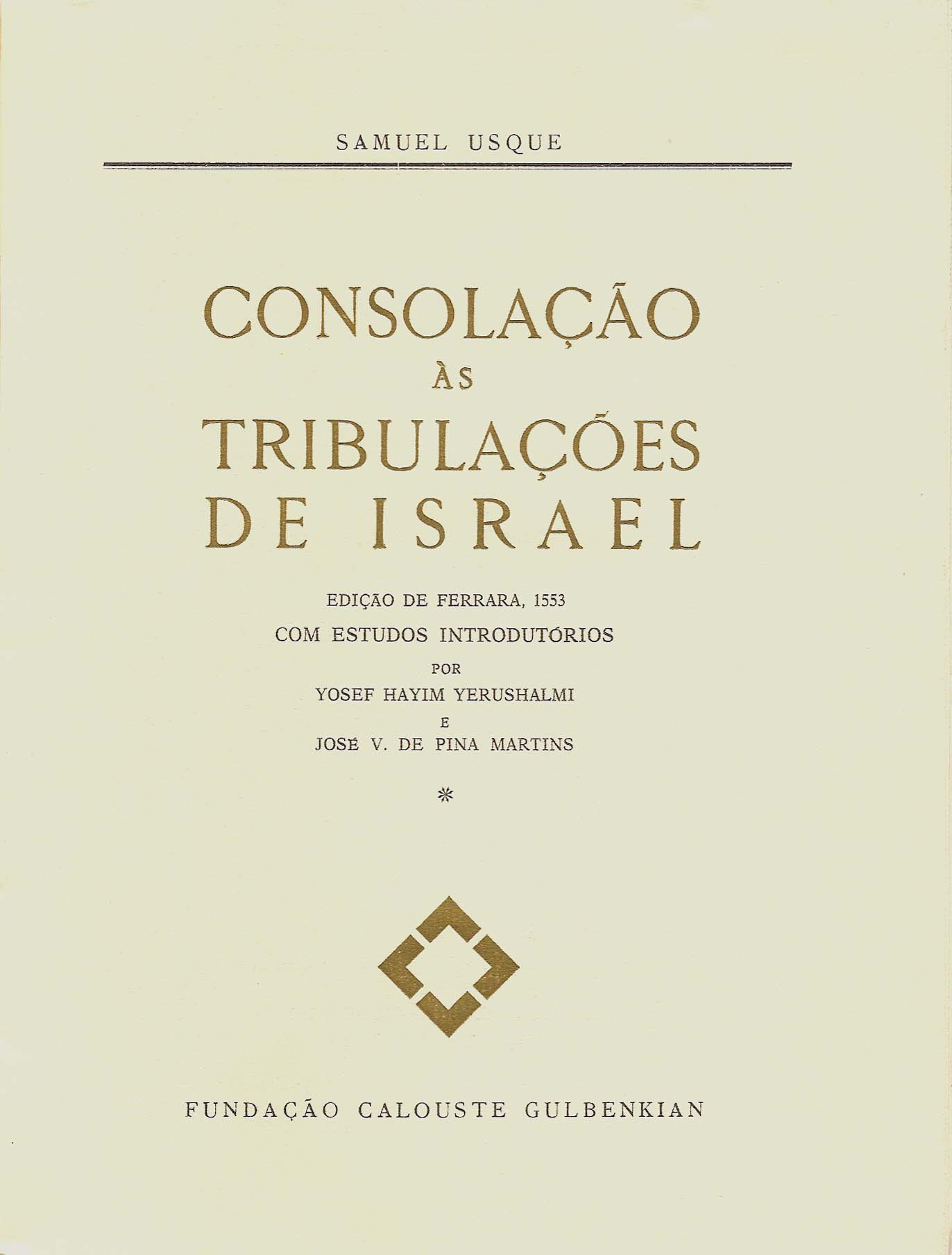
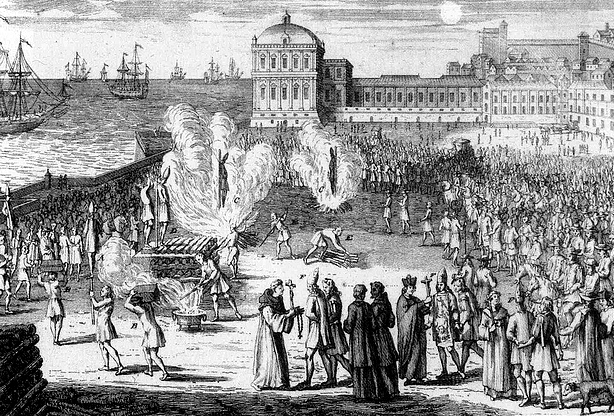
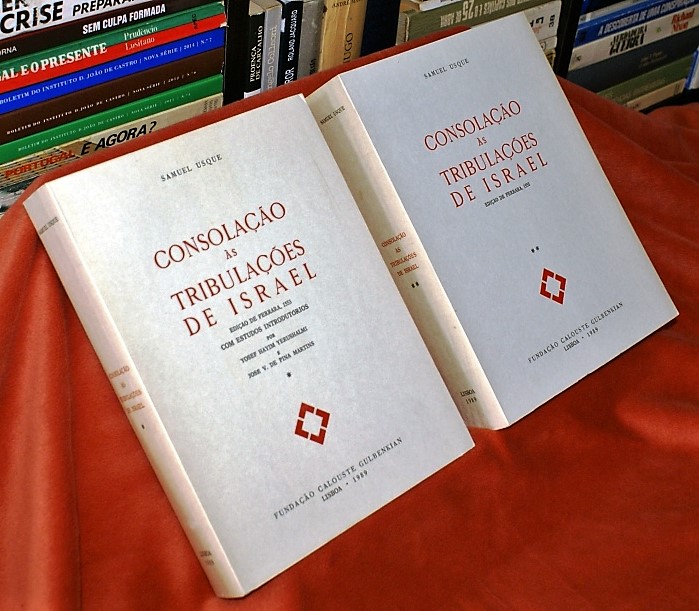
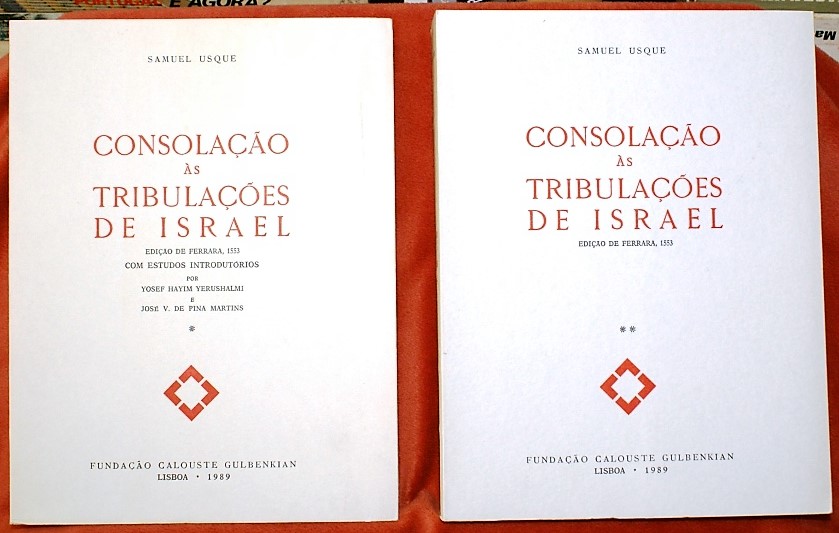
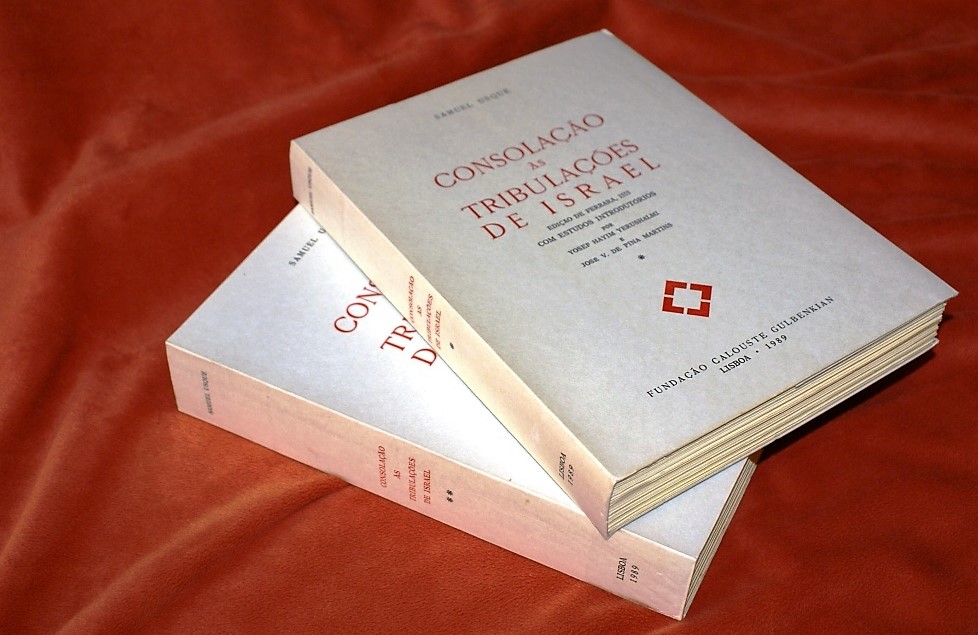
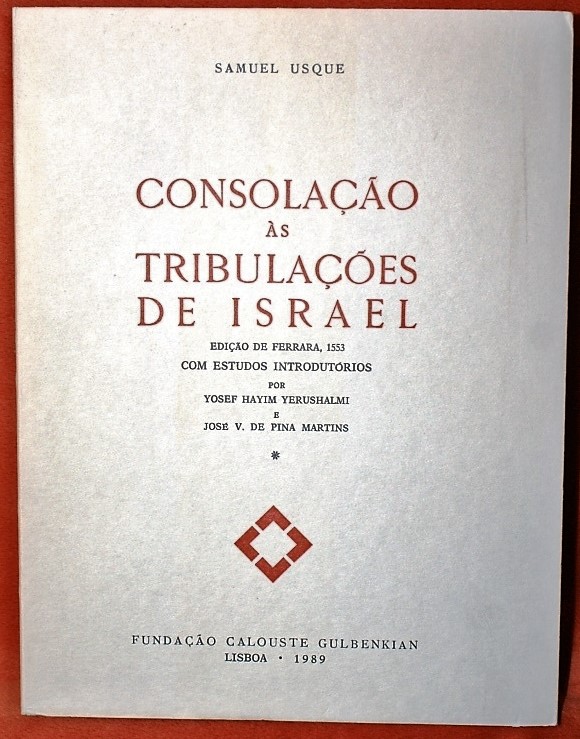
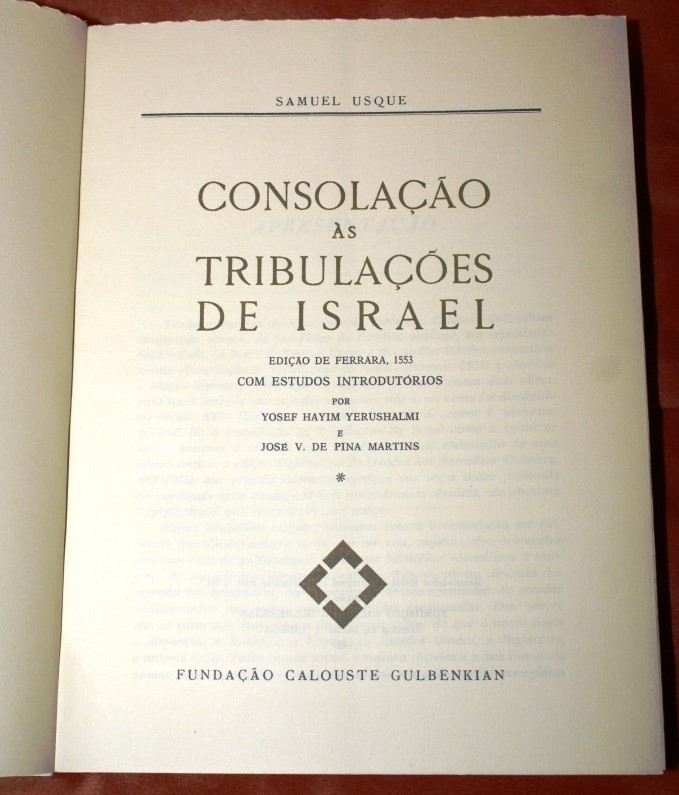
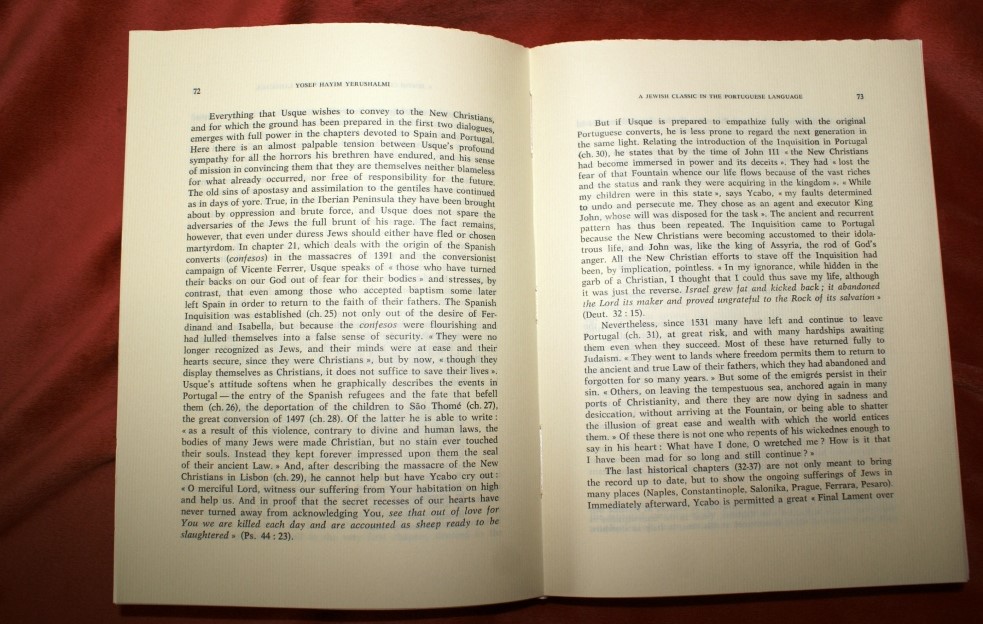
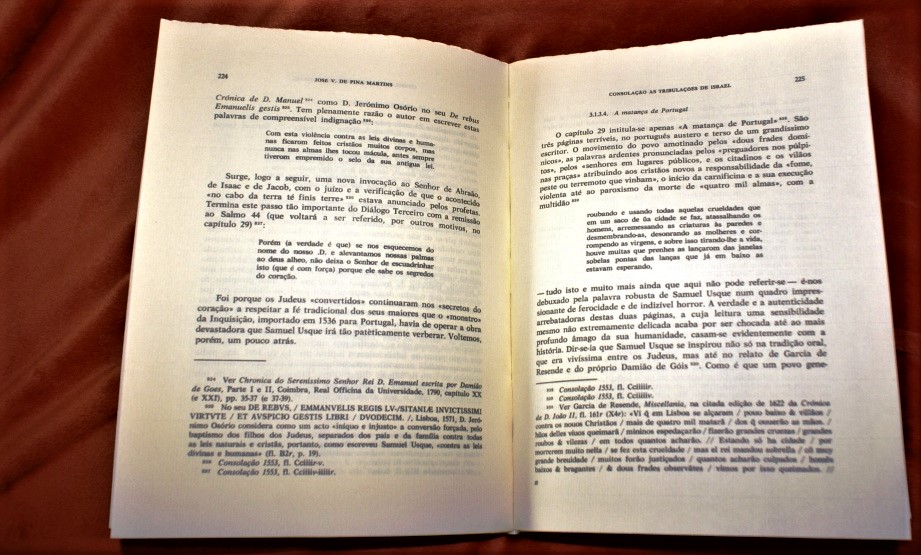
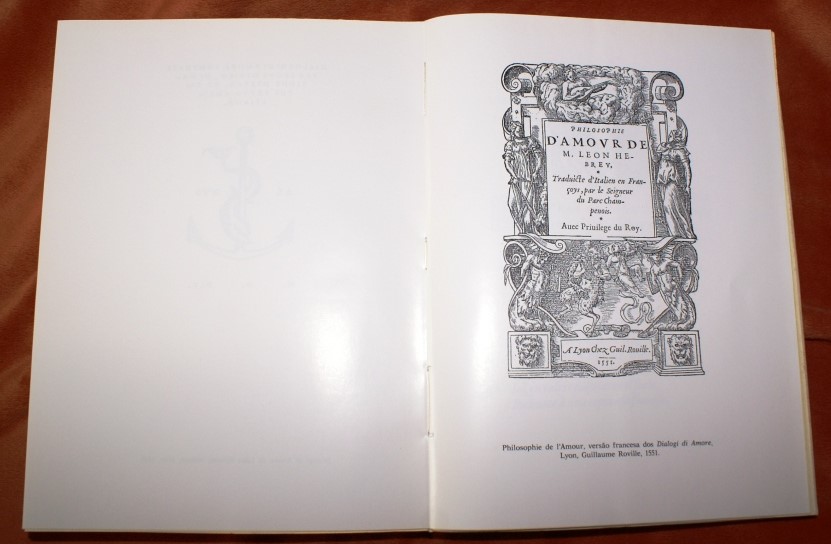
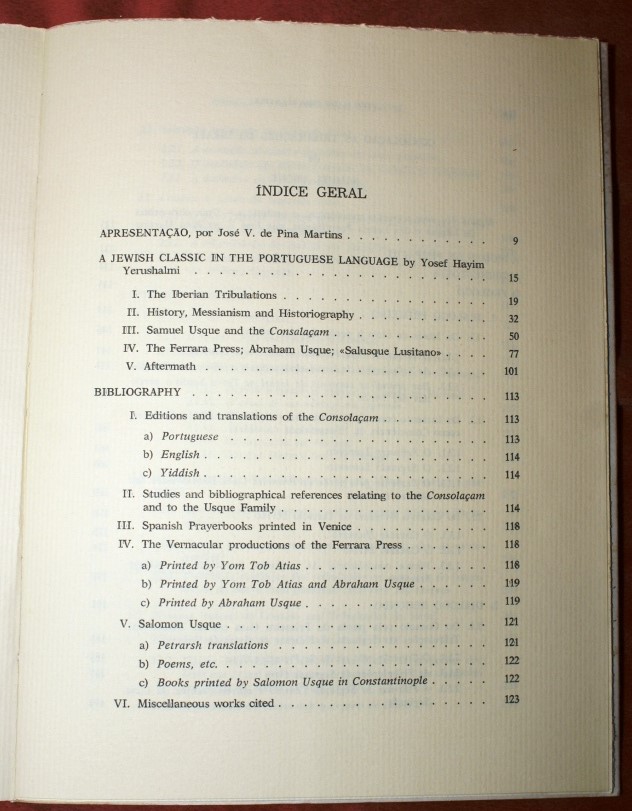
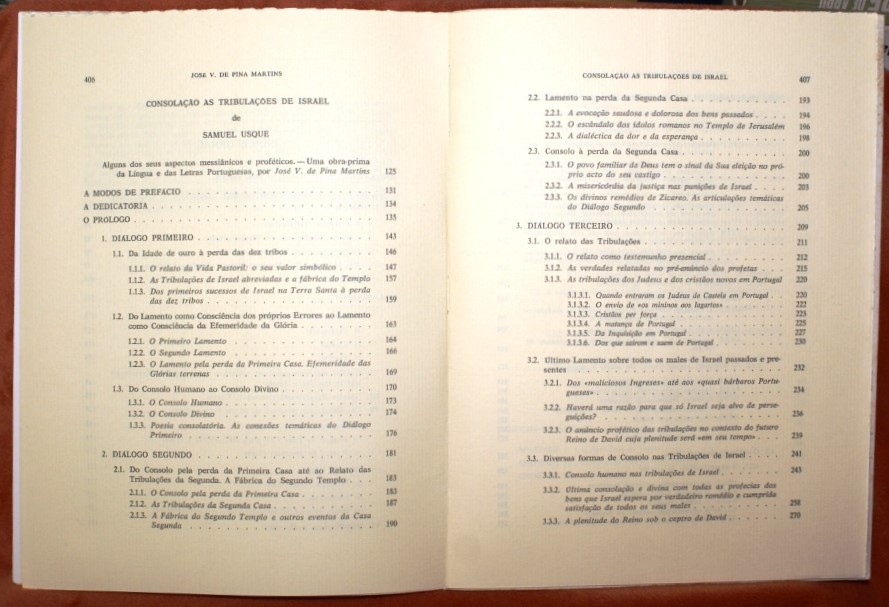
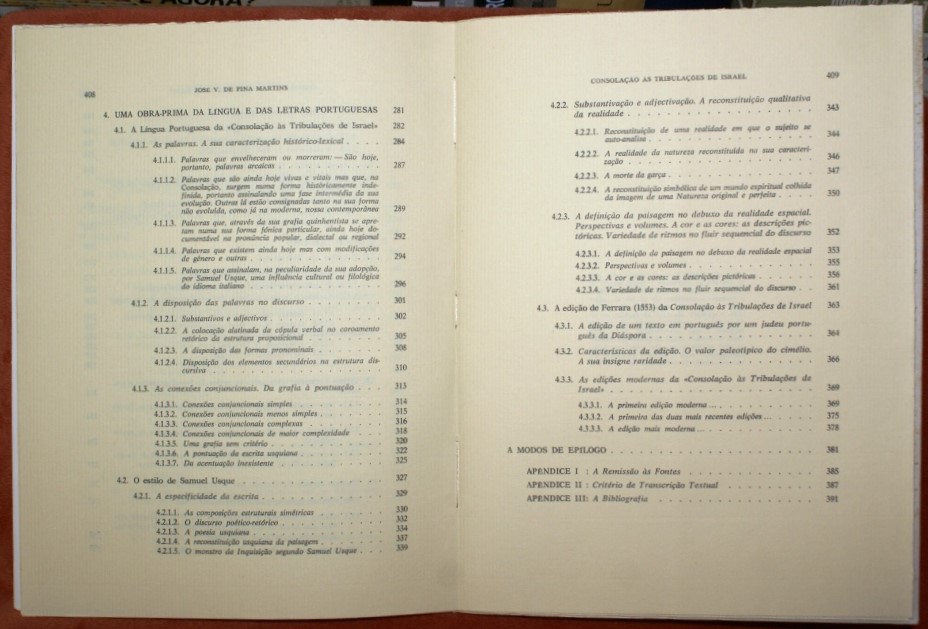
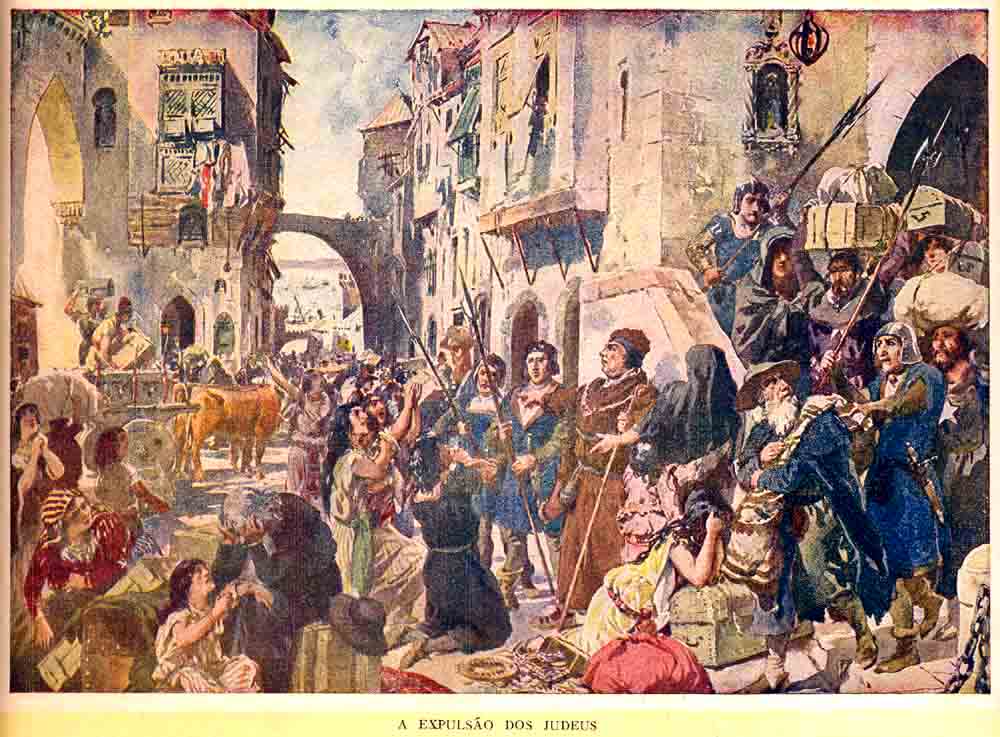
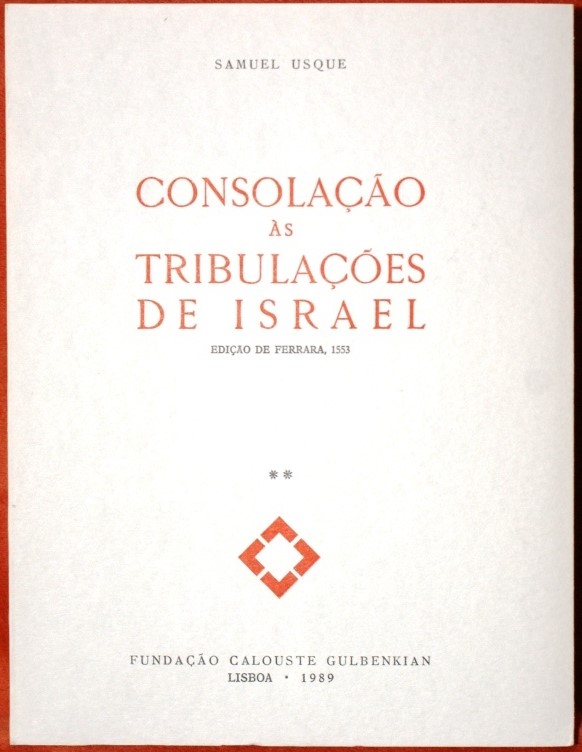
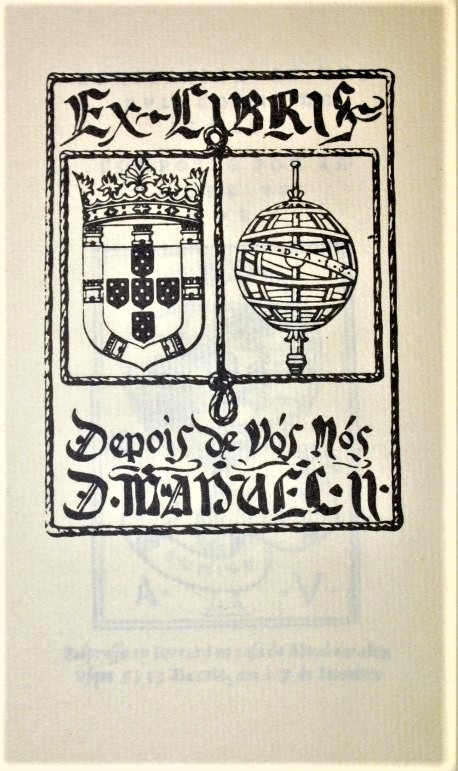
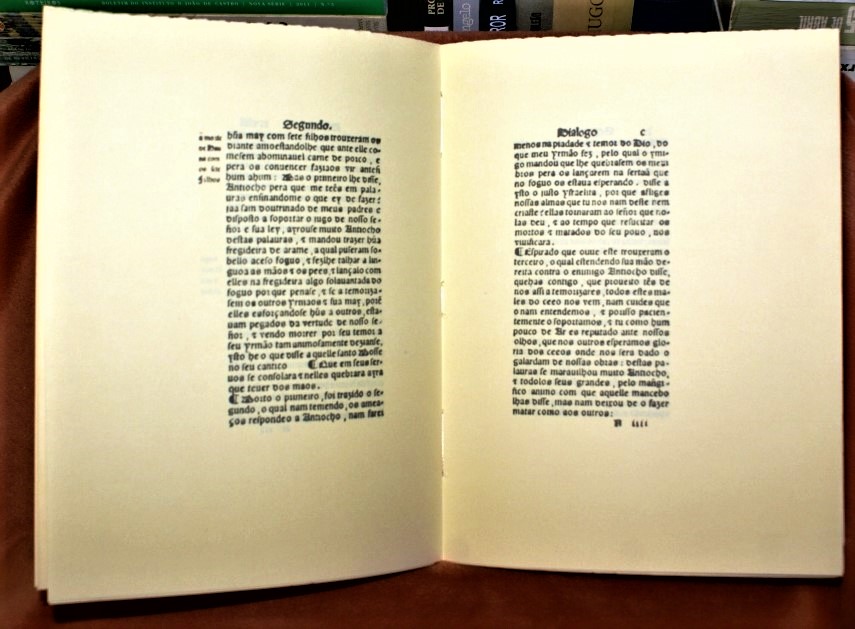
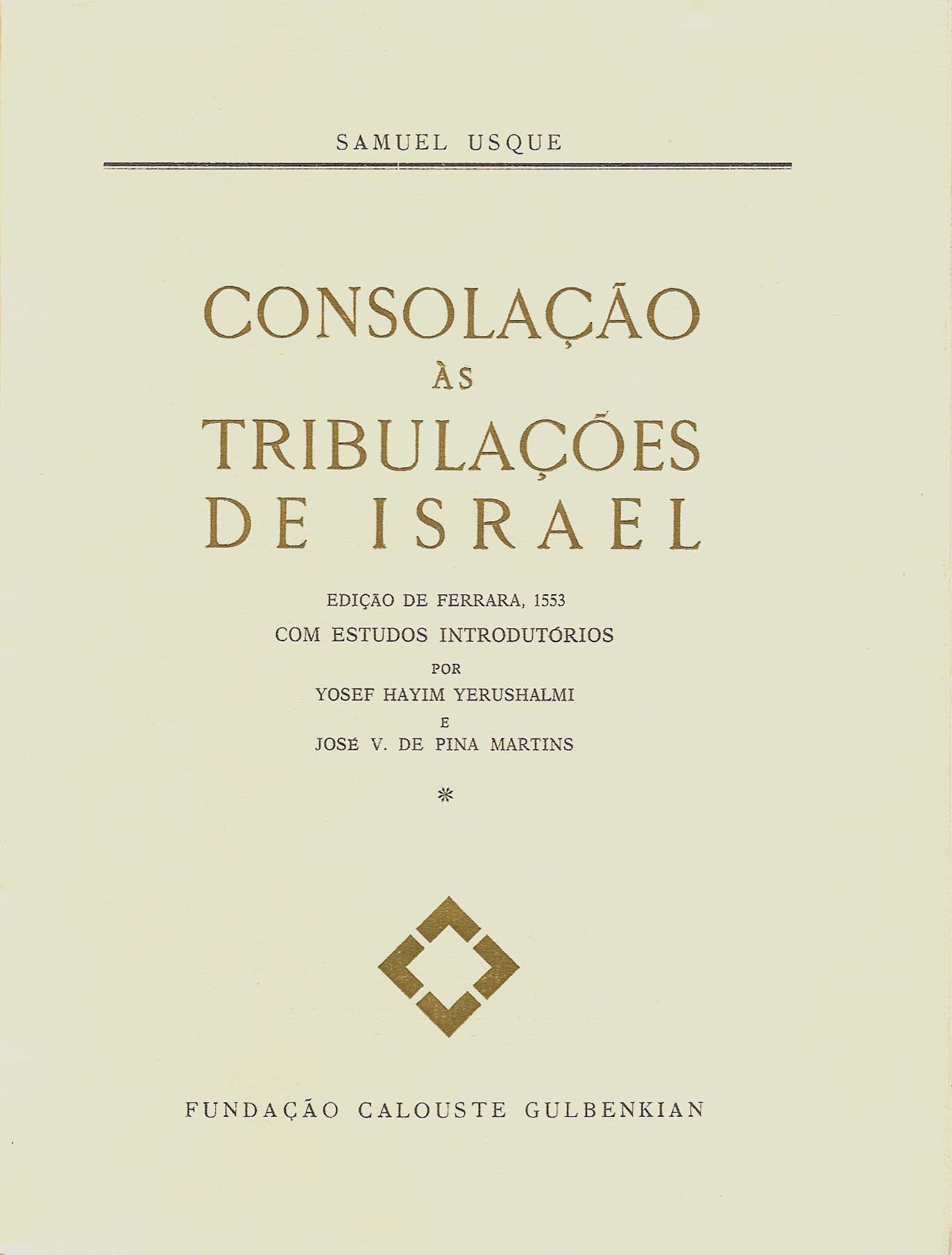
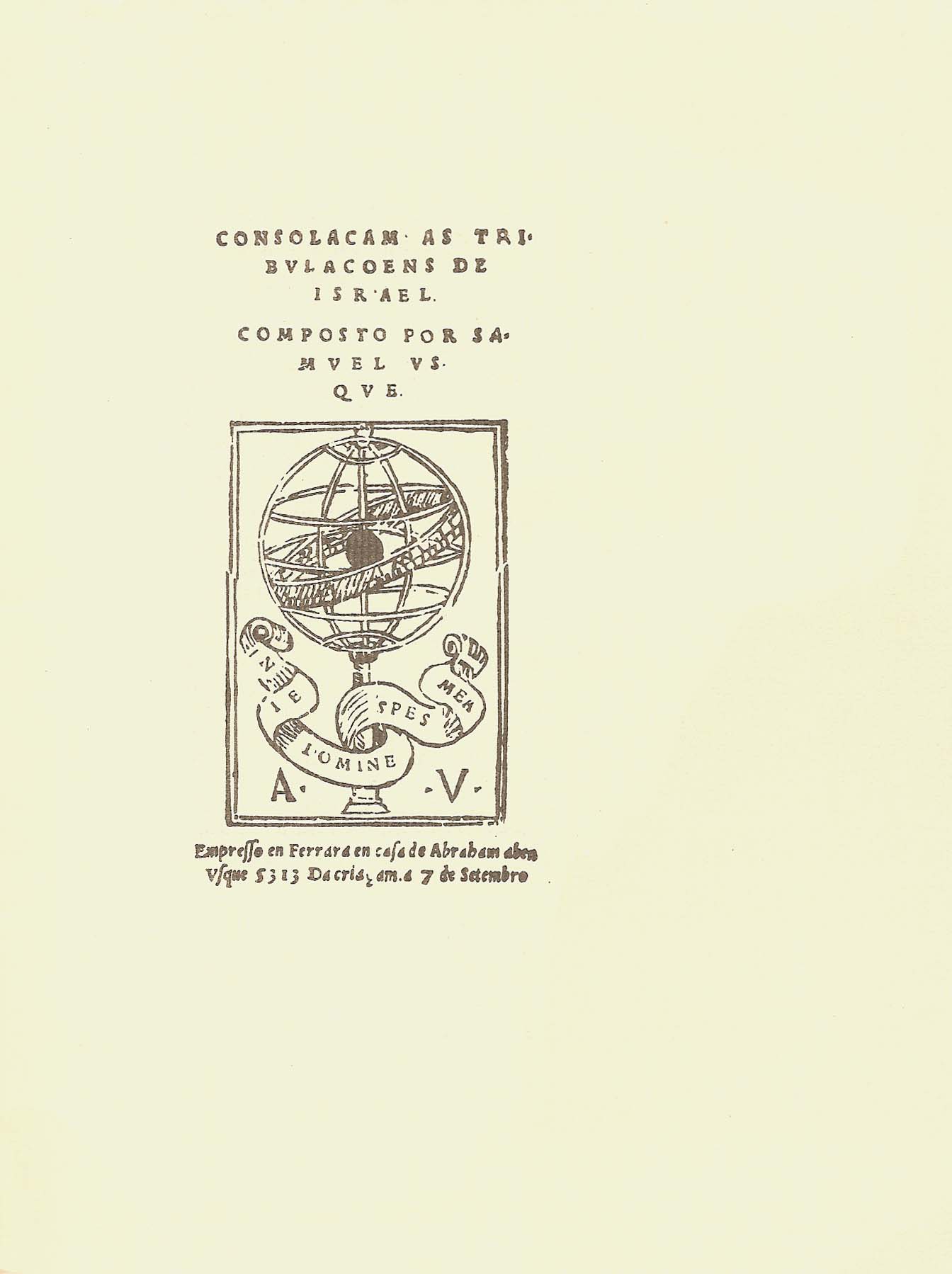
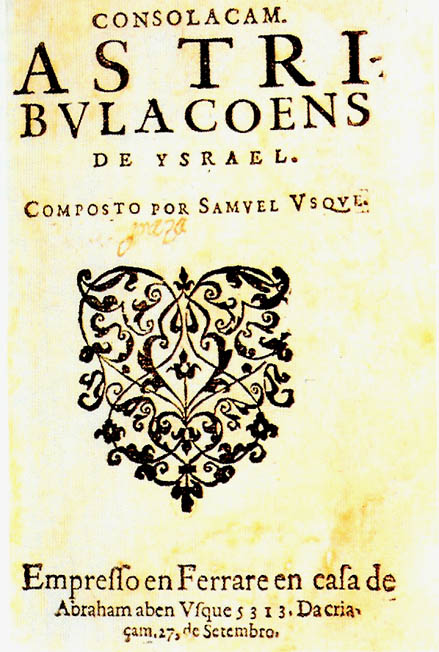

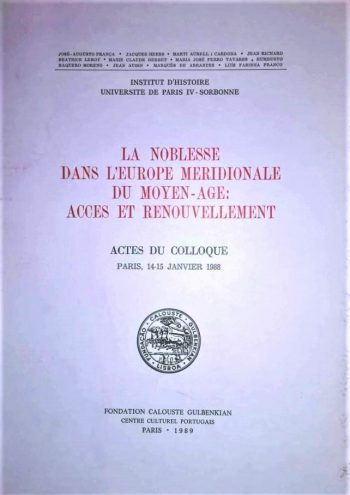

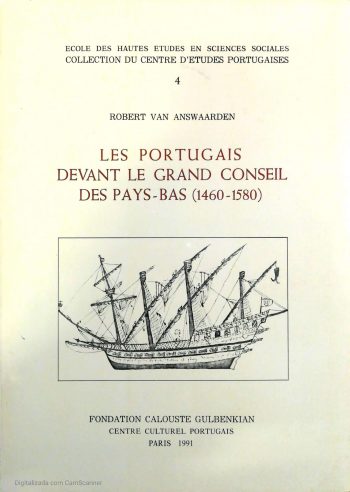
Reviews
There are no reviews yet.